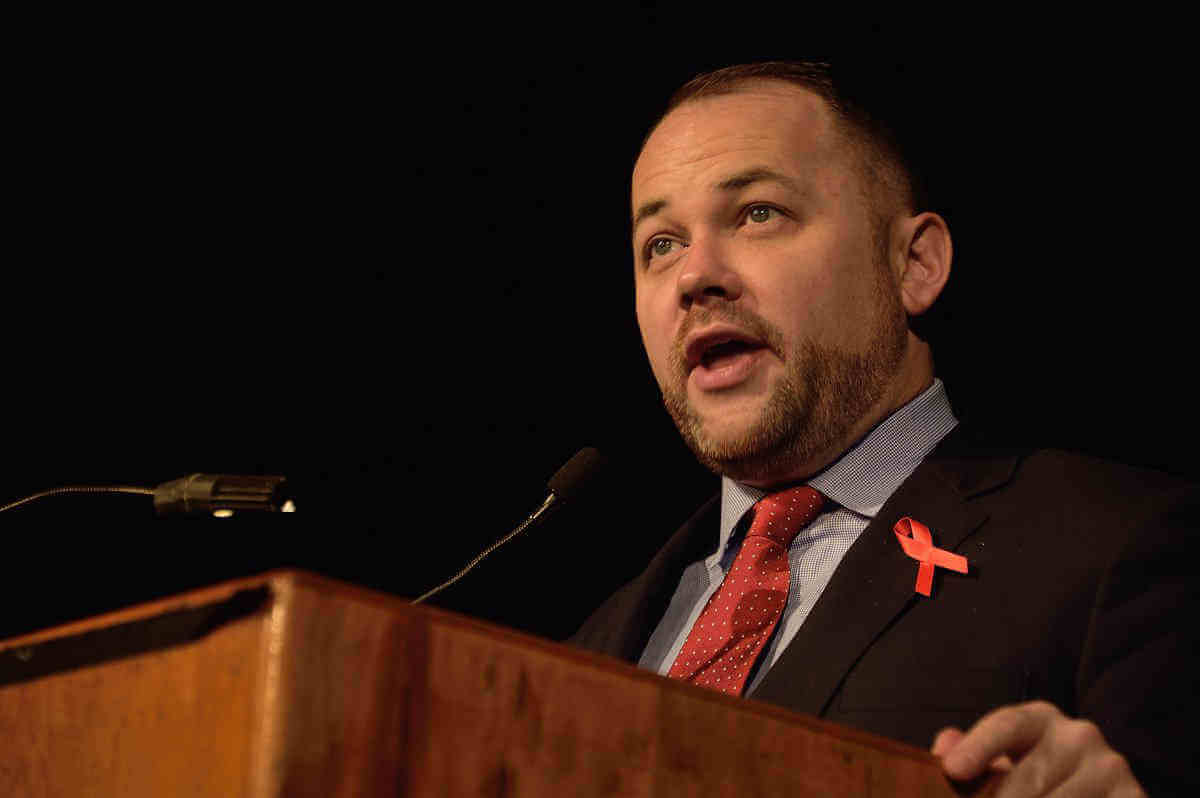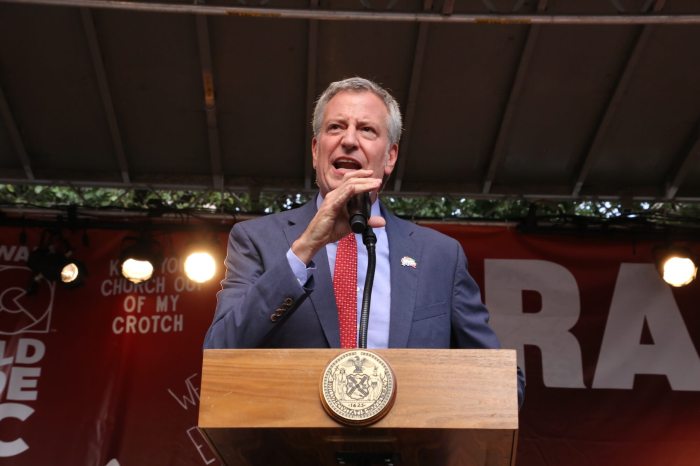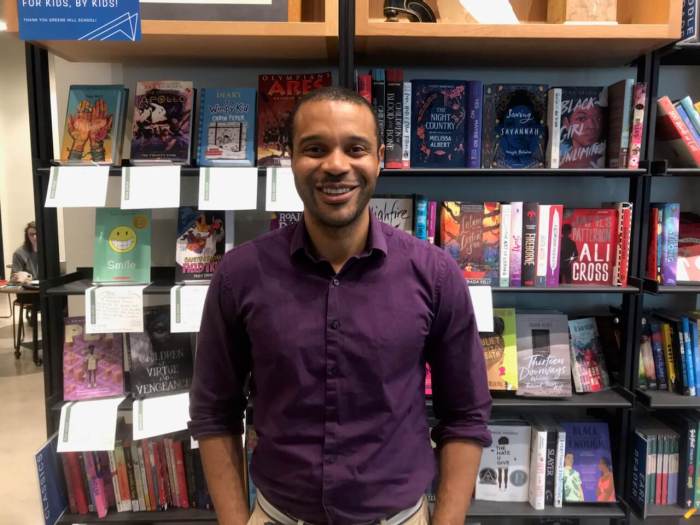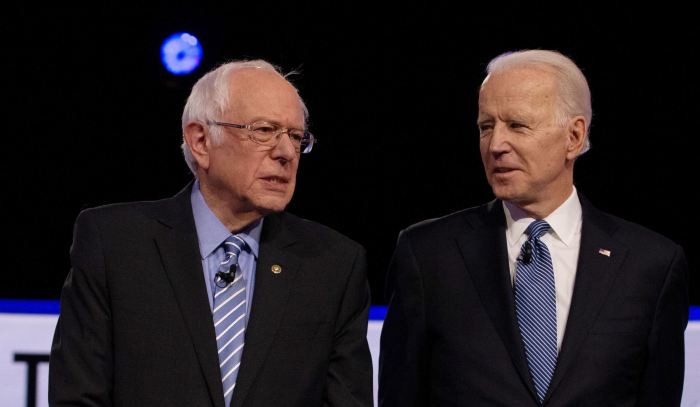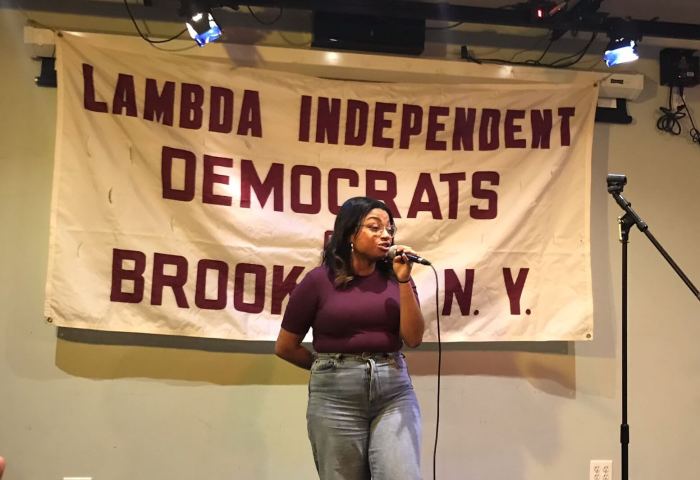Citing, among other factors, recent challenges with depression, out gay City Council Speaker Corey Johnson has exited the 2021 race for mayor one year and eight months after he announced he was considering a run for the city’s top office.
“It was no secret that I had been considering a run for mayor, and that I have put my campaign on pause for the past six months,” Johnson said in a lengthy written statement September 24. “I felt strongly that it was the right thing to do considering all that our city has been going through, including COVID-19, the resulting shutdown and economic pain, and the long overdue national reckoning on race.”
Questions swirled around the status of Johnson’s candidacy in the race ever since the 38-year-old became a prime target of criticism for his role in leading the City Council through a contentious summertime budget battle that ultimately fell short of activists’ demands for substantial cuts to the NYPD budget.
Battered by summertime budget fight, speaker exits contest but vows to remain active in public life
Spurred by the protests that followed the police killing of George Floyd in Minneapolis, reform advocates had pressed for cuts of $1 to $3 billion or more out of a total police budget of roughly $6 billion, but the Council falsely asserted that $1 billion had been trimmed, when in fact a substantial portion of that amount was transferred to other city agencies without a change in how that money was spent.
Johnson, who ascended to the speakership in 2018 at the start of his second term representing Manhattan’s District 3, elaborated on his decision to bow out of next year’s race by vowing to maintain his posture as an elected official unafraid to discuss the impact of his personal life on his public duties.
“Just as I was open about the fact that I was considering a run for mayor, I now want to be open about the fact that I have made the difficult decision not to run,” Johnson added. “This challenging time has led me to rethink how I can best be of service to this city, and I have come to the conclusion that this is not the right path for me… In the same spirit of openness, I would also like to add that I have been dealing with some personal challenges over the past few months, namely depression. I am sharing this because I know from experience the value of speaking honestly about one’s struggles. I’ve been open about my sobriety, which along with my partner and mother, has been instrumental to me during this difficult time, and my HIV status…”
Johnson closed his statement by emphasizing that his exit from the race does not represent the end of his public life, though he did not elaborate on his political future.
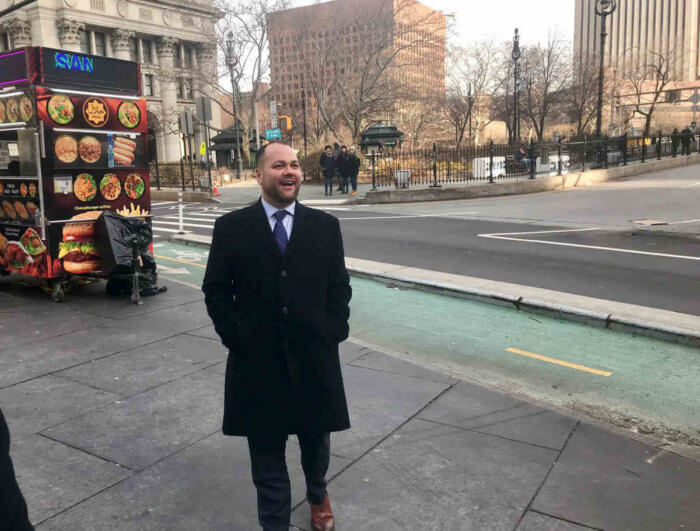
Ken Sherrill, an out gay professor emeritus of political science at Hunter College, believes Johnson was wise to exit the race now rather than run the risk of suffering a defeat next year that could ultimately have dampened his future chances at elected office. Should a local State Senate seat open up or if Congressmembers Jerrold Nadler or Carolyn Maloney eventually decides to retire, Sherrill believes Johnson could opt to pursue one of those routes.
“That might be congenial to Corey,” Sherrill said, underscoring the fact that previous City Council speakers have struggled to regain their footing in political races after leaving office. “You don’t see anyone who recovered politically, with the possible exception of Chris Quinn, who has a non-elected role” — as CEO of Women in Need (WIN), a homeless shelter provider, as well as a frequent informal advisor to Governor Andrew Cuomo.
Sherrill added, “The track record of speakers running for mayor isn’t good, and some of that I think is that the skill set of being a legislative leader is very different from the skill set of being a high level executive leader. [Johnson] could see himself being a very influential legislator on the state or national level if he didn’t run for mayor.”
George Arzt, who served as a spokesperson for the late Mayor Ed Koch and also formerly worked for City Comptroller Scott Stringer, said Johnson’s withdrawal from the race is “unfortunate” considering that, in Arzt’s view, the speaker would have been a strong contender.
“I understand his wishes,” Arzt told Gay City News. “Not everyone wants to go through a bruising nine-month battle, but I’m sure he’s not retiring from public life and we’ll see him running for other public posts… I believe he’s eyeing some position for the future.”
The Lambda Independent Democrats of Brooklyn (LID), a queer political club led by Jared Arader, also responded to Johnson’s departure from the race by voicing respect for his decision.
“These are hard times for the people of New York City,” the club said in a written statement. “LID recognizes Corey’s commitment to a better New York City, and acknowledges how personal this decision was for him. We look forward to supporting a mayoral candidate that will commit to working hard for the people of our borough and city.”
The Stonewall Democratic Club of New York City declined comment for this story, and Allen Roskoff, president of the Jim Owles Liberal Democratic Club and a longtime ally of Johnson, did not immediately respond to a request for comment.
Johnson is term-limited but has more than a year remaining in office, and he is pledging to continue serving out his tenure as speaker. A one-time grassroots activist who threw himself into street protests, Johnson eventually found himself on the other side: After rising to a position of power, protesters flocked to his own doorsteps and those of his partner in the midst of the budget battle that coincided with a broader nationwide movement targeting police brutality and racial injustice.
Since rising to the post of the citywide speakership, Johnson has sometimes found himself walking a tough tightrope on queer issues: He wavered when asked about the anti-LGBTQ actions of Brooklyn City Councilmember Chaim Deutsch and he angered advocates when he embraced the Nordic Model approach to sex work decriminalization — in which sex workers but not their clients would be free from criminal prosecution, a position at odds with the goals of many advocates to achieve comprehensive decriminalization.
Nonetheless, Johnson has also led on queer rights during his time as a city lawmaker, becoming the first out gay man to serve as speaker and championing legislation such as his bill that gave New Yorkers the ability to update the gender marker on their birth certificates. He proved an unforgettable presence in the city’s annual Pride festivities with his exciting dance routines at the front of the City Council contingent, eliciting robust praise on social media platforms and emerging as a likeable political figure with a bright future.
Johnson also wooed progressives at the outset of his exploratory campaign for City Council when he pledged to limit his contributions to just $250 per person and committed to avoid taking money from lobbyists, corporate PACs, or real estate developers and their employees. He stopped fundraising during the pandemic and concluded his campaign with $634,820 on hand, according to the city’s Campaign Finance Board.
Following Johnson’s announcement, a large wave of support flowed in on social media platforms, with many individuals commending him for speaking out about his own personal journey and the realities of his mental health.
“Grateful for the outpouring of support and love today,” Johnson wrote on the afternoon of September 24. “The last few months have been hard personally — I’m grateful for friends and family and especially my boyfriend and my mom… A lot of people counseled me not to disclose my depression — I did so because I knew that it was the right thing to do for me and would bring some relief to myself and hopefully others. If you’re struggling. You’re not alone. Get the help you need. You’re worth it. Sending love to NYC. Purple heart.”
Johnson’s departure from the race leaves Loree Sutton, a retired brigadier general in the US Army who went on to lead the city’s Department of Veterans’ Services, as the lone out LGBTQ candidate remaining in a mayoral race that has heated up in recent weeks. City Comptroller Scott Stringer rolled out an impressive slate of endorsements this month in his quest to become an early frontrunner nine months before voters head to the polls in the Democratic primary.
With Johnson out of the race, Stringer and Brooklyn Borough President Eric Adams are among the top mayoral candidates remaining, while Maya Wiley, a former MSNBC legal analyst and an ex-counsel to Mayor Bill de Blasio, is also in the mix, among others.
Johnson is now the second out queer city lawmaker to bow out of a race this year, after Queens Councilmember Jimmy Van Bramer exited the race for Queens borough president in January. Among the five out gay city lawmakers, all term-limited, only one — Ritchie Torres of the Bronx — is on track to continue serving in elected office after their terms are up. Torres emerged victorious in the race for the 15th Congressional District this summer and is all but certain to cruise to victory in November.
To sign up for the Gay City News email newsletter, visit gaycitynews.com/newsletter.

